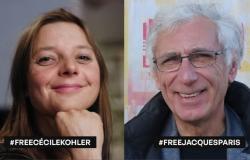They no longer want to be silent. While one in five French people is affected by mental disorders, speech on mental health is released. M6 broadcasts this Tuesday, May 6, a documentary to break this taboo. We discover testimonies of anonymous but also those of great sportsmen like the former tennis player Yannick Noah who recounts his psychological collapse just after his victory at Roland Garros in 1983.
“My priority since I was 12 was winning this tournament in Paris. All the people I loved were there. My father, he jumps on the court. Happiness was to win. The next day, I was lost. All the people around me thought I was living my best life. But I wanted to leave. I was walking at night in Paris. I looked at the seine and I said to myself ‘I throw myself’. I never had a diagnosis, I managed. We are not going to help a guy who won, who has money. What does he want? We do not realize that behind, there is a sensitive human being, “he says in the documentary.
At the time, it was taboo to go see a psychologist or talk to someone. It was not good so we hide it all.
Henri Leconte
Another tennis player affected by depression, Henri Leconte. If appearing, he knew and hidden it after his lost final at Roland-Garros in 1988. “For more than a year to two years, I couldn’t even go out on the street, people treated me with all the names, I wanted to leave. At the time, it was taboo to go see a psychologist or talk to someone. It was not well hidden. Ultimately, we don’t even know how to play tennis“He says at the microphone of RTL.
To develop mentalities for 30 years, the psychologist Meriem Salmi encourages high -level athletes to confide, whether anonymous or at the top like Teddy Riner. “We have the impression that victory ensures permanent well-being. No, victory also engages a certain number of responsibilities, responses to the media, sponsors, such sporting performance requirements that can lead to this type of situation,” she explains.
The Simone Biles gymnast, swimmers Camille Lacourt and Michael Phelps showed the way. Expressing discomfort is today a factor in performance.
Read more








